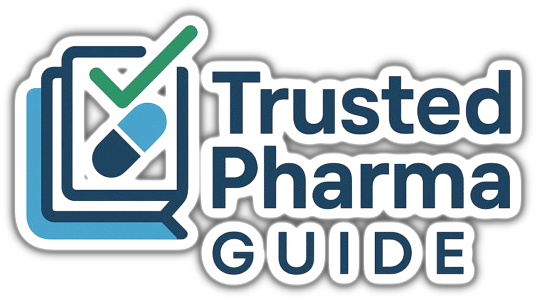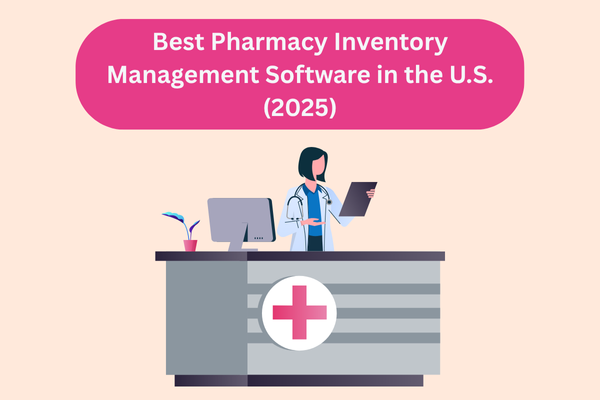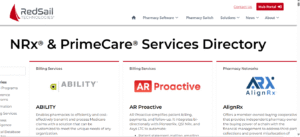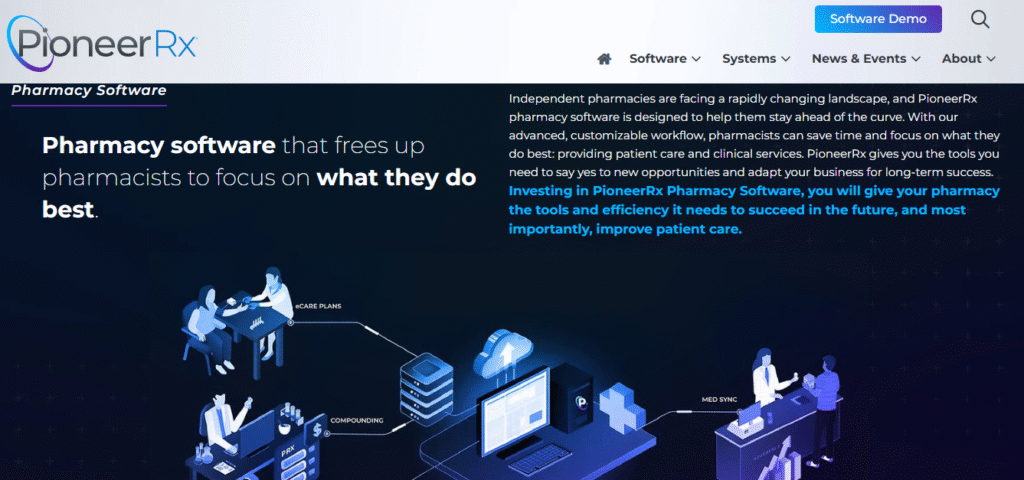Table of Contents
Introduction :
Pharmacy inventory management is more complicated than it seems. From complying with U.S. healthcare regulations to tracking expired medications and controlled substances, every pharmacy needs an efficient system. That’s where pharmacy inventory management software comes in. In this blog post, we’ll explore the top HIPAA-compliant pharmacy software systems in the U.S. for 2025. Whether you run an independent retail pharmacy or manage inventory at a long-term care (LTC) facility, this guide will help you find the right solution to streamline your workflow
What is Pharmacy Inventory Management Software?
Pharmacy inventory management software is a digital system that helps pharmacies track, manage, and control their medication inventory. It ensures accuracy, automates reordering, prevents overstocking, and ensures compliance with:
• HIPAA (Health Insurance Portability and Accountability Act)
• DEA (Drug Enforcement Administration) guidelines
• 21 CFR Part 11 (FDA Compliance for Electronic Records)
Benefits of Using Pharmacy Inventory Software :
• Real-time stock updates
• Automated purchase orders and reorders
• Expiration and batch tracking
• Regulatory compliance (DEA, HIPAA, 340B)
• Reports and analytics for better decision-making
• Cost control and profit margin optimization
Top Pharmacy Inventory Management Software in the U.S. (2025)
Here’s a detailed breakdown of the top-performing and most trusted software solutions used by U.S. pharmacies:
1. QS/1® (Now part of RedSail Technologies)
📌 Overview:
One of the oldest and most respected pharmacy systems in the U.S., QS/1 supports community, chain, and LTC pharmacies.
🔑 Features:
- Real-time inventory and auto-reorder
- DEA Schedule II-V tracking
- Automated refills and e-prescribing (SureScripts certified)
- POS and third-party billing integration
- Label printing and barcode scanning
✅ Pros:
- Fully HIPAA and 21 CFR compliant
- Easy integration with McKesson and Cardinal Health
- Great for LTC pharmacies
❌ Cons:
- Traditional UI
- Premium support can be costly
🎯 Best For: Community pharmacies, LTC pharmacies, and hospital outpatient units
2. PioneerRx
📌 Overview:
PioneerRx is the most recommended software for independent pharmacies in the U.S., known for its modern, user-friendly design and comprehensive features.
🔑 Features:
- Live inventory with audit trails
- Interface for eCare plans and medication therapy management (MTM)
- EPCS (Electronic Prescriptions for Controlled Substances)
- Workflow automation
- SyncRx and med synchronization
✅ Pros:
- Modern cloud-based design
- Excellent support and onboarding
- Mobile access for deliveries and inventory
❌ Cons:
- Higher upfront training fees
- Better suited for tech-savvy users
🎯 Best For: Independent pharmacies, specialty pharmacies
3. Liberty Software
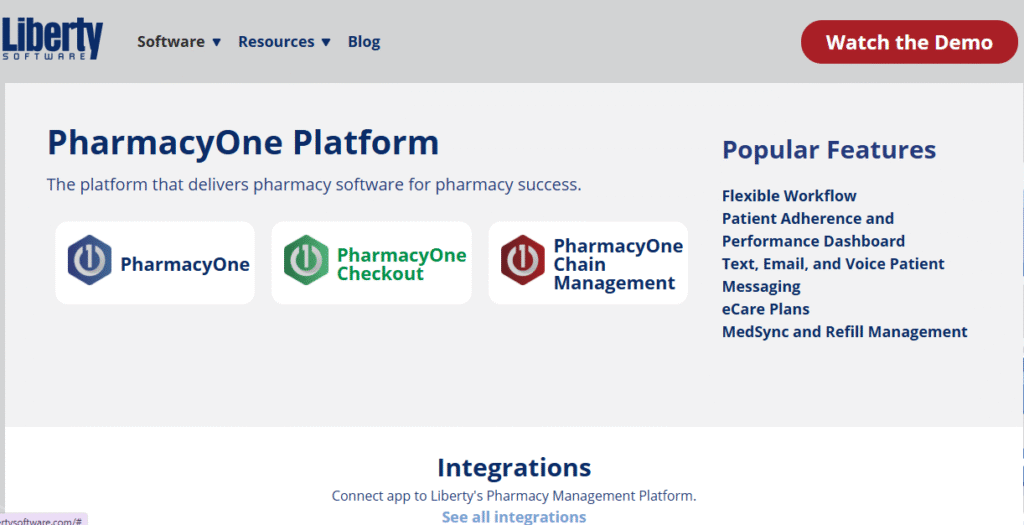
📌 Overview:
A rapidly growing pharmacy software trusted for its ease of use, Liberty Software is ideal for both compounding and retail pharmacies.
🔑 Features:
- Real-time inventory alerts
- Integration with wholesalers like AmerisourceBergen
- HIPAA-compliant cloud system
- Barcode, lot, and expiration date tracking
- Custom compounding module
✅ Pros:
- Easy to use, minimal training required
- Affordable and scalable
- Great customer service
❌ Cons:
- Not ideal for complex LTC facilities
- Limited mobile features
🎯 Best For: Retail pharmacies, compounding pharmacies
4. Rx30 (by Transaction Data Systems)
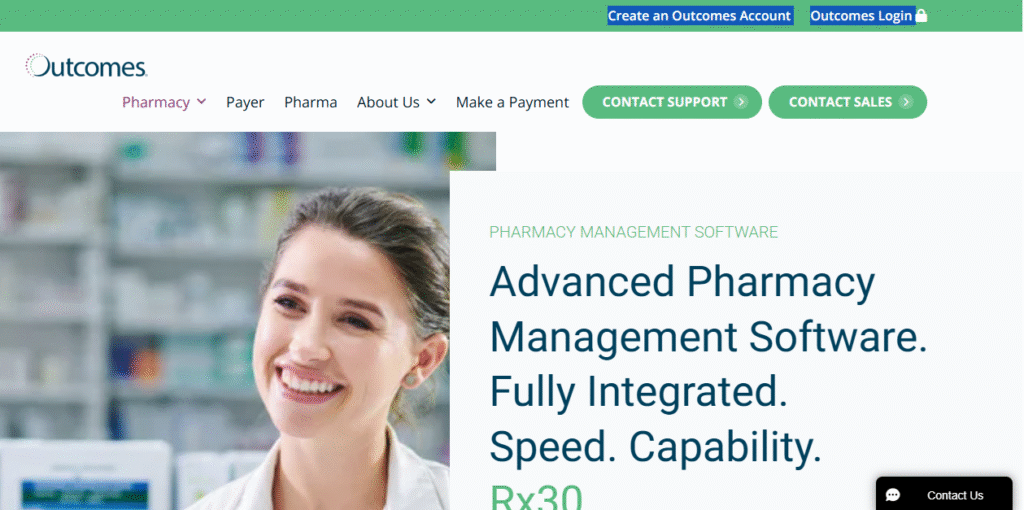
📌 Overview:
Rx30 is a powerful pharmacy software used in both independent and regional chain pharmacies. It focuses on automation, inventory, and third-party claim integration.
🔑 Features:
- Multi-location inventory sync
- Auto-order generation
- POS integration
- Built-in clinical decision support
- DEA and PDMP reporting support
✅ Pros:
- Strong claims processing system
- Great for busy retail setups
- Excellent customer support
❌ Cons:
- May feel outdated compared to PioneerRx
- Interface not very customizable
🎯 Best For: Mid-sized retail pharmacies, independent stores
5. McKesson Pharmacy Systems (EnterpriseRx)
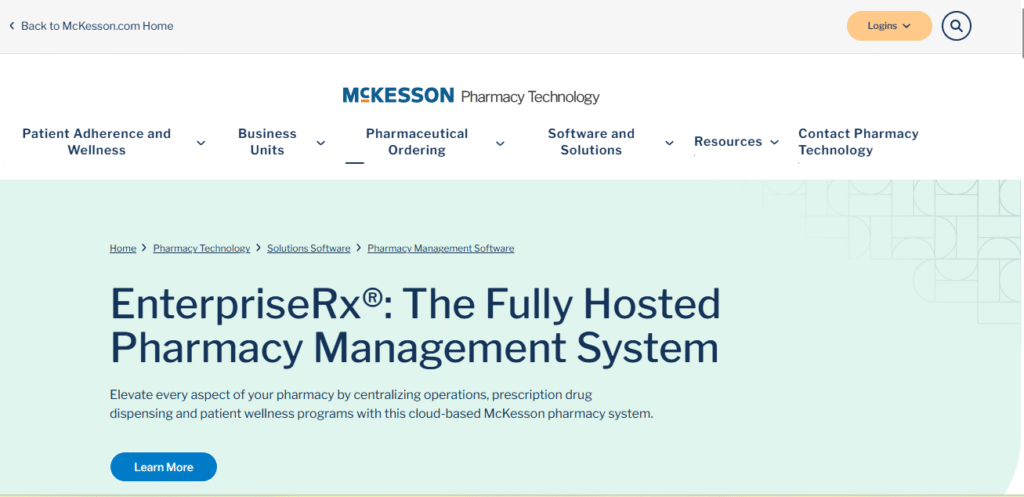
📌 Overview:
EnterpriseRx, from McKesson, is designed for large-scale and hospital pharmacy chains. It provides a full enterprise solution, including inventory, clinical workflow, and 340B management.
🔑 Features:
- 340B inventory tracking
- Centralized purchasing and returns
- Integration with McKesson Connect
- Controlled substance tracking
- Comprehensive analytics dashboard
✅ Pros:
- Enterprise-level control and customization
- Seamless McKesson supply chain access
- Meets hospital accreditation needs
❌ Cons:
- High setup and maintenance cost
- Overkill for small pharmacies
🎯 Best For: Hospitals, large health systems, multi-location operators
Comparison Table :
| Software | Best For | Cloud-Based | HIPAA Compliant |
| QS/1 | LTC, retail | ✅ | ✅ |
| PioneerRx | Independent, specialty | ✅ | ✅ |
| Liberty Software | Retail, compounding | ✅ | ✅ |
| Rx30 | Mid-sized retail | ✅ | ✅ |
| McKesson EnterpriseRx | Hospitals, chains | ✅ | ✅ |
U.S. Regulatory Compliance Checklist :
When choosing pharmacy software, ensure it supports:
✅ HIPAA (patient privacy)
✅ 21 CFR Part 11 (FDA electronic records)
✅ DEA Schedule II-V compliance
✅ PDMP (Prescription Drug Monitoring Programs) integration
✅ EPCS (e-prescribing for controlled substances)
Bonus Features to Look For :
- Multi-location stock syncing
- Integration with SureScripts
- EHR/EMR interface
- MTM tracking
- Mobile app access
- Drug interaction database
Final Thoughts :
The right pharmacy inventory management software can transform your operations, reduce stock losses, and boost customer satisfaction. For U.S. pharmacies in 2025, tools like PioneerRx, Liberty Software, and QS/1 lead the way in compliance, automation, and reliability.
Before choosing a platform, consider:
- The size of your pharmacy
- Your need for mobile access
- Integration with current suppliers and POS
- Compliance with HIPAA, DEA, and 340B
